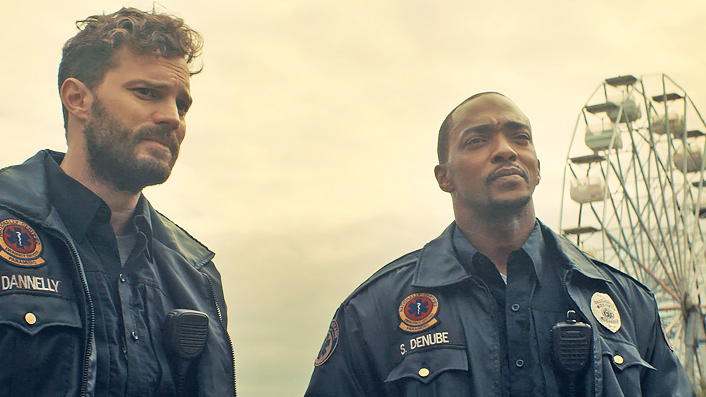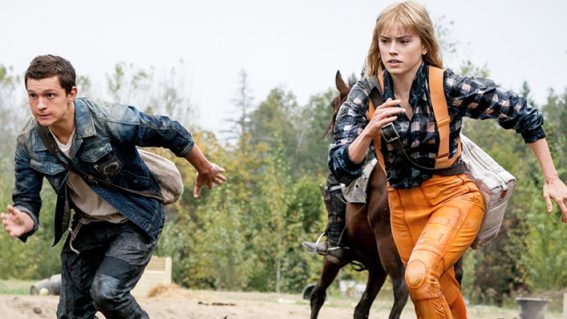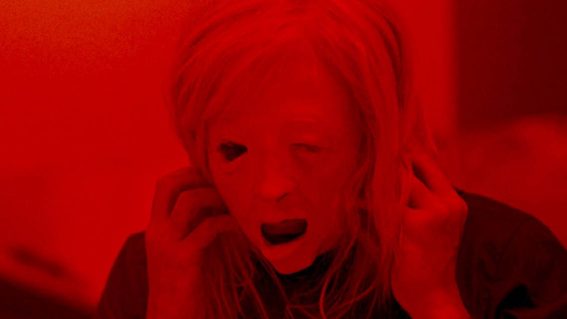Synchronic’s time travel drugs bring a novel approach to the genre
At its best, the film makes great use of Anthony Mackie’s effortless charisma.

Anthony Mackie (Captain America: The Winter Soldier) and Jamie Dornan (50 Shades of Grey) star in time-travel horror Synchronic as two New Orleans paramedics who encounter a bizarre drug that produces otherworldly effects. With a concept higher than its budget, Liam Maguren explains why this film’s for time-travel fans looking for something novel in the genre.
Time-travel drugs. That’s a juicy elevator pitch for a sci-fi flick but one that could easily crumble in the wrong hands. Fortunately for reality-warping thriller Synchronic, it’s hands are those of directors Aaron Moorhead and Justin Benson, an indie darling pair known for subverting and refreshing tired concepts to exciting effect. Their 2017 horror The Endless, in particular, managed to do something completely new in the overcrowded time-loop genre.
See also:
* All movies now playing
* All new streaming movies & series
* The best movies of 2020
The set-up for Synchronic certainly grabs the attention. Anthony Mackie plays Steve, an alcoholic bachelor with a terminal illness who—ironically—saves other people’s lives as a paramedic next to Jamie Dornan’s unhappily married loser Dennis. The two are never short of work living in the dumpster side of New Orleans, especially when the titular drug circulates and leave young people either dead or maimed in mysterious ways.
From sword stabbings to self-combustion, these incredibly odd side-effects seemingly have no link. Somewhat hilariously, the piss-poor police aren’t interested in connecting the dots either. Due to a contrived set of circumstances involving his brain cancer and Dennis’s missing daughter, only Steve can figure out this drug—and he must turn himself into a time-jumping guinea pig to do so.
At this stage, Synchronic‘s at its best. Making the most of Mackie’s effortless charisma, it’s a giddy joy seeing Steve trying the drug and researching its abilities. It’s a lot like the scenes in 2012’s Chronicle where the boys film themselves messing around with their new superpowers, except it’s a half-drunk Anthony Mackie relaying his understanding of space-time. It’s great, as is the reminder that journeying through America’s past is the whitest of privileges.
Sadly, the concept’s higher than the budget, resulting in a few empty-looking sets and painful greenscreen moments that take away from some otherwise tense sequences in different centuries. It’s mitigated a bit by the film’s trippy depiction of travelling time as well as some inspired transitions that use match cuts and images of the cosmos to convey the sense that time’s not linear. Overall, however, the production quality can’t quite match the film’s ambitions.
Neither can the rapport between Steve and Dennis. Though Mackie and Dornan clearly work well together, as proven by subtle one-shot scenes that let the actors simply act, their budding bromance isn’t given enough to work with. Steve’s alcohol addiction only gets passing mentions (especially weird given his move to down a bunch of time-travel drugs) while Dennis’s childish beef with being a family man is only thinly explored. They spend a lot of time talking about how they don’t talk about their problems, which is a respectable issue to bring up about men but isn’t countered enough with moments of Steve and Dennis supporting each other. As a result, the conclusion—which relies on this key pillar of bromance—feels oddly unmoving.
Ultimately, Synchronic is for people who love time-travel stories and are aching for a novel approach to the genre. Moorhead and Benson deliver enough to put this film above more forgettable fare like Project Almanac and I’ll Follow You Down, though it won’t break your mind like Looper and Timecrimes did.























